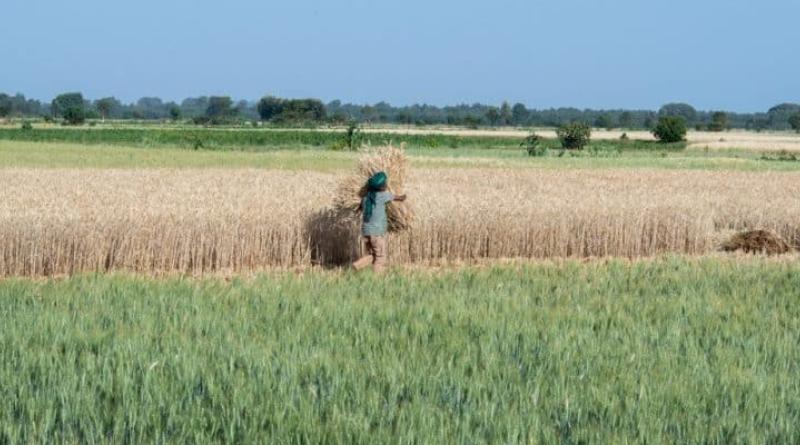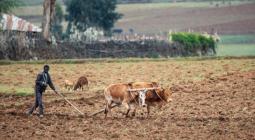ETHIOPIA: GCA technical assistance for growing climate-resilient wheat

The Global Center on Adaptation (GCA) has joined forces with the African Development Bank (AfDB) to support the cultivation of climate-resilient wheat in Ethiopia. Much of this country in the Horn of Africa has been affected by drought for more than 4 years.
Climate change is threatening food security throughout the Horn of Africa. In Ethiopia, the government is implementing the Climate Resilient Wheat Value Chain in Ethiopia (CREW) project. Addis Ababa has just received support from the Global Center on Adaptation (GCA), which has joined forces with the African Development Bank (AfDB) to support this multi-faceted project.
CREW focuses on improving wheat production in the face of climate change. Within this framework, the Ethiopian government wants to facilitate access to seeds for small-scale farmers, while promoting wheat varieties adapted to the new irrigated zones in mid-mountain regions. CREW will also enable the rehabilitation, development and management of irrigation systems. According to the authorities, the aim is to improve the efficiency of existing irrigation systems by rehabilitating and maintaining infrastructure, desilting, draining and extending canals, etc.
GCA support
The rehabilitation of irrigation systems should involve 1,500 hectares of plantations in the Afar region, 950 hectares in the Amhara region, more than 13,000 hectares in the Oromia region and at least 1,500 hectares in the Somali region. In addition to improving the road network to facilitate crop evacuation, Addis Ababa will support the installation of 528 water pumps with a capacity of 75 litres per second and maintenance kits for groups of farmers under a cost-sharing agreement.
As part of CREW, the GCA will provide technical support by “assessing local climatic conditions and food security, the structure of the local economy and access to resources in order to identify parts of the country that are performing below potential in terms of agricultural productivity”, says the centre headed by Patrick Verkooijen. The GCA will also help to generate maps and information on climate risks “at the micro-regional level in order to highlight favourable local conditions for specific interventions aimed at accelerating agricultural adaptation, and to facilitate the production of a feasibility plan and a master plan for the integration of digital adaptation solutions”, says the institution based in Rotterdam in the Netherlands.
AfDB funding
The centre also plans to support capacity building for extension agents and stakeholders involved in “the deployment of digital climate advisory services and adaptation solutions in the provision and implementation of agricultural extension services for the wheat value chain in the project sites”.
According to the Ethiopian government, the Climate Resilient Wheat Value Chain in Ethiopia (CREW) project will benefit 500,000 smallholder farming households, or 2.3 million people. The project targets 50% women, including 15% female-headed households (75,000 households with 345,000 people) in 78 woredas (districts) in the regional states of Afar, Amhara, Oromia and Somali.
According to the AfDB, which is financing the project to the tune of $40 million, the Amhara and Oromia regions are the country’s largest upland wheat-producing areas, while the Afar and Somali regions have great potential for irrigated lowland wheat. The four regions produce around 3.8 million tonnes of wheat, 82% of which is rain-fed and 18% irrigated. CREW will require an investment of 94.5 million dollars.
Published on / Modified on



